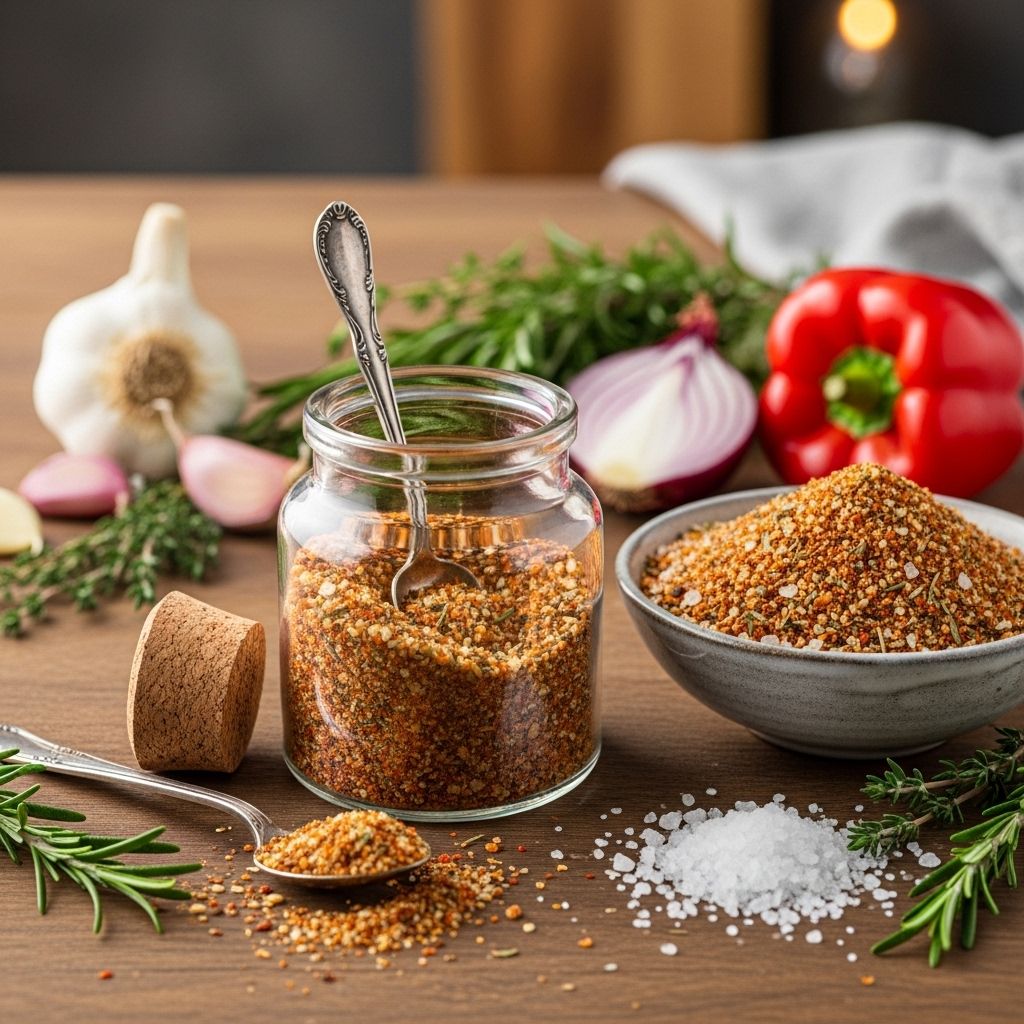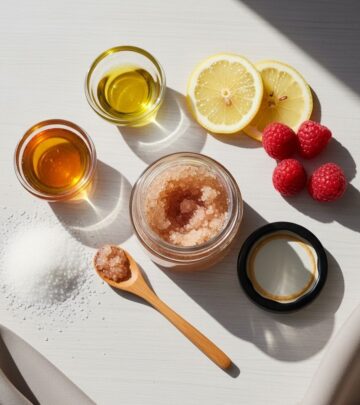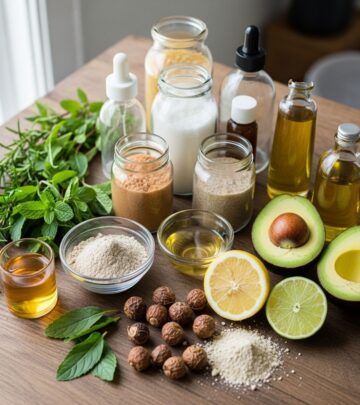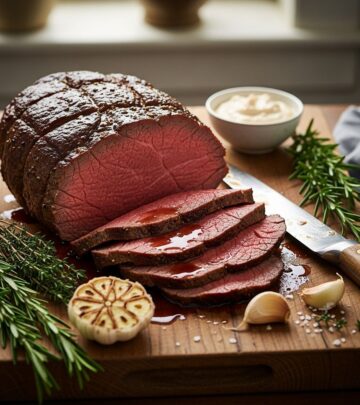Homemade Seasoned Salt Recipe: Guide To A Flavorful Salt Blend
Create your own seasoned salt blend at home – easy, customizable, and perfect for seasoning a variety of dishes.

Image: HearthJunction Design Team
Homemade Seasoned Salt: A Flavorful Kitchen Staple
Seasoned salt is a versatile, all-purpose spice blend that can instantly enhance the flavor profile of any dish, from meats and vegetables to snacks and side dishes. While store-bought versions—like Lawry’s or other popular brands—are pantry staples, making seasoned salt at home allows you to control ingredients, sodium content, and flavor balance perfectly to your taste. This guide will walk you through everything you need to know, from ingredients to storage tips, uses, variations, and answers to common questions.
Why Make Your Own Seasoned Salt?
- Control Over Ingredients: Choose high-quality spices, omit additives, and adjust saltiness.
- Customizable Flavors: Adjust the proportions or add herbs for your personal touch.
- Cost-Effective: Homemade blends are budget-friendly compared to store-bought versions.
- Always Fresh: Blend small batches for a fresher, more vibrant flavor than prepackaged salts.
Ingredients
Most homemade seasoned salt recipes use simple pantry staples. Below is a classic blend for about 1/3 cup of seasoned salt, suitable for multi-purpose use:
- 1/4 cup kosher salt
- 4 teaspoons ground black pepper
- 1 teaspoon paprika
- 1 teaspoon garlic powder
- 1/2 teaspoon onion powder
- 1/2 teaspoon cayenne pepper (optional for heat)
Note: You can adjust quantities for your preferred flavor or dietary needs.
How to Make Seasoned Salt
- Combine all ingredients in a small bowl.
- Mix thoroughly using a spoon or whisk until completely blended.
- Transfer the mixture to an airtight container or spice jar for storage.
- Label the container with the date and blend name.
Tips for Best Results
- Use fresh spices: For optimal potency, use recently purchased spices and replace them every 6-12 months.
- Mix well: Ensure the mixture is evenly distributed, especially if you double or triple the batch.
- Storage: Keep in a cool, dry place away from light and heat sources.
Flavor Variations
One of the joys of homemade seasoned salt is that it can be endlessly varied. Here are a few ideas to inspire custom blends for different uses:
| Variation | Additional Ingredients | Best Uses |
|---|---|---|
| Herbed Seasoned Salt | 1 tsp dried thyme, 1 tsp dried parsley | Roasted vegetables, chicken, potatoes |
| Citrus Seasoned Salt | 1 tsp dried lemon or orange zest | Fish, seafood, salads |
| Smoky Seasoned Salt | 1 tsp smoked paprika, pinch ground chipotle | Steaks, burgers, grilling |
| Low-Sodium Seasoned Salt | Substitute half or all salt with potassium salt or omit as desired | Dietary needs, low-sodium cooking |
Best Uses for Seasoned Salt
Homemade seasoned salt is incredibly adaptable. Use it as a substitute for plain salt in everyday cooking or as a finishing touch for added flavor. Here are some favorite ways to use it:
- Roasted or Grilled Vegetables: Sprinkle before or after cooking.
- French Fries and Potato Wedges: Toss with hot, oven-baked fries for instant flavor.
- Popcorn: Dust over freshly popped popcorn for a savory snack.
- Meats: Use as a dry rub or seasoning for chicken, pork, beef, or seafood before grilling or baking.
- Egg Dishes: Transform scrambled eggs, omelets, and frittatas.
- Soups and Stews: Stir in for a finishing burst of flavor.
- Pasta and Rice: Season cooked grains before serving.
Storage and Shelf Life
Proper storage ensures your homemade seasoned salt maintains its flavor and freshness:
- Store in an airtight container, such as a glass spice jar or tightly sealed plastic container.
- Keep in a cool, dry, and dark place (like a pantry or spice cabinet).
- For best flavor, use within 6 months, although it will remain safe to use for up to 1 year if kept dry.
- If the blend clumps, break it up with a fork or shake before use.
Nutritional Considerations
Homemade seasoned salt allows you to control sodium and omit preservatives, anti-caking agents, or added sugars. It can fit almost any dietary need and is suitable for gluten-free, vegan, and low-sodium diets (with modifications as needed).
Comparison: Homemade vs. Store-Bought Seasoned Salt
| Criteria | Homemade | Store-Bought |
|---|---|---|
| Ingredient Control | Complete | Limited |
| Preservatives/Additives | None (unless added) | Usually present |
| Customizability | Unlimited | Standardized flavors |
| Cost | Lower (per serving) | Higher (per serving) |
| Shelf Life | 6–12 months | Longer (due to additives) |
Tips for Gifting Homemade Seasoned Salt
- Package in decorative glass jars or spice bottles.
- Add a personalized label with ingredients and suggested uses.
- Pair with a recipe card for a thoughtful homemade gift.
- Perfect for holidays, birthdays, or housewarming gifts.
Frequently Asked Questions (FAQs)
How much seasoned salt should I use?
Start with a small amount (about 1/4 to 1/2 teaspoon per serving) and adjust to taste. Remember, it is salt-based, so use sparingly, especially if also salting your dish.
Can I make this seasoned salt without cayenne?
Yes, omit or reduce the cayenne pepper if you prefer a milder blend. You can also substitute with smoked paprika for a warm, smoky flavor without heat.
Is homemade seasoned salt gluten-free?
Yes, as long as all individual spices you use are certified gluten-free. Double-check packaging for potential cross-contamination if you have allergies or sensitivities.
How do I prevent clumping in homemade seasoned salt?
Store in a dry place, use airtight containers, and add a few grains of uncooked rice or a silica gel packet to absorb moisture if needed.
What are some creative uses for seasoned salt?
- Mix into breading for fried chicken or fish.
- Blend with butter for a seasoned spread or finishing butter.
- Stir into sour cream or Greek yogurt for a quick dip.
- Sprinkle on avocado toast or fresh cut tomato slices.
Summary
Homemade seasoned salt is a quick and easy way to add big flavor to your kitchen creations. With pantry staples, you can create a blend that’s fresher and more customizable than any store-bought version. Whether you’re looking to cut sodium, avoid additives, or just elevate your cooking, this simple recipe is a must-have in every home chef’s spice cabinet.
References
- https://www.allrecipes.com/recipe/237461/homemade-seasoned-salt/
- https://www.allrecipes.com/recipe/238702/copycat-lawrys-seasoned-salt/
- https://www.allrecipes.com/recipe/213562/bevs-seasoned-salt/
- https://www.allrecipes.com/recipe/213561/kings-seasoned-salt/
- https://www.allrecipes.com/recipe/213563/kosher-seasoning-salt/
Read full bio of Anjali Sayee












